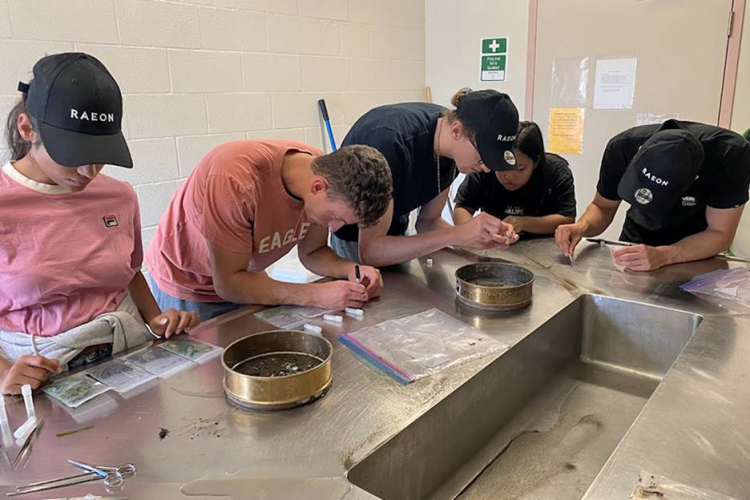A new project led by researchers at the University of Windsor will combine their data with that gathered by community members to protect the waters of the Great Lakes.
Led by the Real-time Aquatic Ecosystem Observation Network (RAEON), "Bridging Knowledge Gaps between Scientific Data and Citizen Science" will engage individuals and communities in collecting information to supplement research activities.
Starting in May, RAEON will lead bi-weekly community science events where volunteers will collect baseline water quality data and learn about the factors that influence the health and ecological integrity of their local watersheds.
The goal is to build knowledge that leads to actionable steps to protect Canadian resources while engaging people in stewardship of the Great Lakes, says Katelynn Johnson, project co-lead and research and operations director for RAEON and learning specialist in the UWindsor School of the Environment.
"The benefits of having individuals participate in the science is twofold: first, their input will help expand and supplement data collection," she says. "But perhaps even more important, participants will learn more about the scientific process and the challenges facing the environment in which they live."
Data collected by individuals will supplement traditional scientific methods to help inform decision-making processes, develop and refine management plans, and address research needs related to Great Lakes water quality and ecosystem health. This integrated approach ensures that decision-makers have access to comprehensive and diverse datasets, enabling them to formulate evidence-based policies and management strategies, Johnson says.
The data will contribute to research publications and conference presentations, adaptive and holistic management plans, and environmental policies, while developing a better informed and engaged society involved in the stewardship of their environment.

Environmental studies undergraduates sort and classify specimens from the Detroit River.
The project team is collaborating with institutions across the Great Lakes region to extend its reach and facilitate participation from diverse communities. The team will engage municipal, provincial, and federal government scientists, managers and ministers, nonprofit agencies, and underrepresented groups, such as nontraditional fishers.
A key part of this effort will be led by the community science liaison, who will engage a variety of groups, including K-12 schools, universities, and colleges; water utility and wastewater industry personnel; professional associations; municipal, provincial and federal authorities; non-governmental organizations; recreational water users; and bi-national partners.
Besides Johnson, the project team leads include Aaron Fisk, co-lead, science director of RAEON, professor in the School of the Environment, and Tier 1 Canada Research Chair in Changing Great Lakes Ecosystems; and RAEON community science liaison Edward Millar.
The project will be funded by a $540,000 grant from the Canadian Water Agency in addition to $672,667 in-kind funding, for a total of $1,212,667.













